Zed’s dead, baby. Zed’s dead
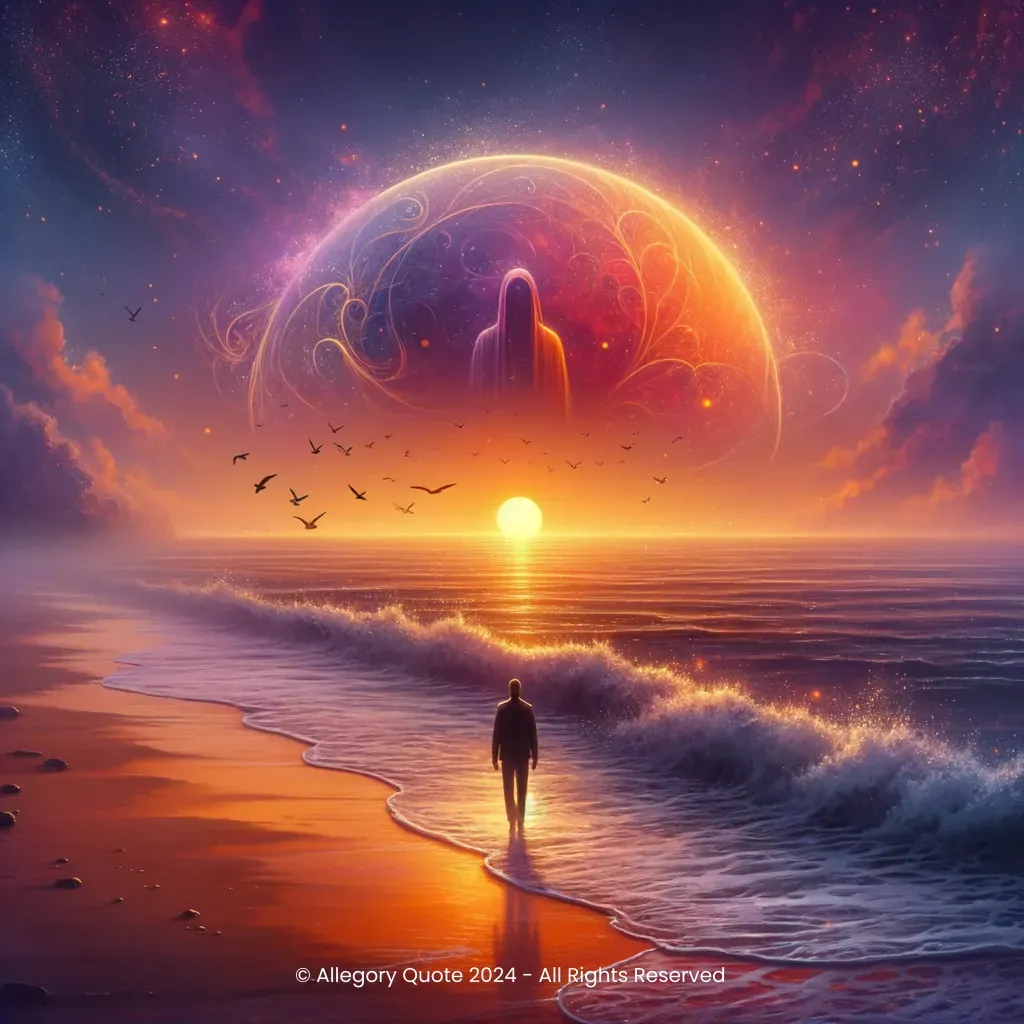
0
0
0
0
- Meaning
- The phrase indicates the finality of Zed's life, signifying the end of an entity or a character's story. It reflects themes of mortality, consequence, and the dark humor that pervades Tarantino's works. Philosophically, it echoes existential thoughts on life and death, and psychologically, it hints at the inescapability of one's fate. The repetition emphasizes the gravity of the situation while simultaneously conveying absurdity.
- Allegory
- The image captures Zed's deadness through the serene landscape of an ocean at dusk, emphasizing tranquility in finality. The waves symbolize the inexorable passage of time and the acceptance of what has passed, while the silhouette represents the character's faded story. The soft hues convey warmth and nostalgia, suggesting that even in endings, there can be beauty and a sense of peace.
- Applicability
- This phrase can be applied as a reminder of the inevitability of endings and consequences in life. It encourages individuals to recognize when something can no longer be salvaged, urging acceptance of loss, whether in relationships, careers, or life goals.
- Impact
- The impact of this phrase on culture is significant, as it has become iconic among film enthusiasts and serves as a touchstone for references to Tarantino's work. It has inspired discussions about film dialogue, character archetypes, and the use of humor in serious contexts.
- Historical Context
- The phrase originated in the 1994 film 'Pulp Fiction.' It can be linked to the broader context of the 1990s film culture that embraced non-linear storytelling and complex characterizations, where violence and humor often coexist.
- Criticisms
- There have been discussions regarding the portrayal of violence and moral ambiguity in Tarantino's films. Critics argue that the casual acceptance of death perceived in the phrase could desensitize viewers to real-world consequences. However, supporters argue that the film and the quote expose the absurdity of certain violent situations, provoking thought rather than condoning violence.
- Variations
- Variations or interpretations of this phrase can be found in other contexts of storytelling, particularly in genres that blend humor with darker elements. For instance, in some cultures, expressions around death or finality often carry a light-hearted twist, showcasing a unique perspective on mortality.
-
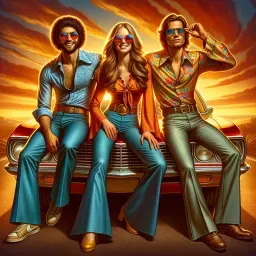
We’re gonna be like three little Fonzies here. And what’s Fonzie like? Cool.
-

I’m gonna get medieval on your ass.
-
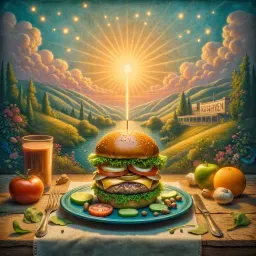
This is a tasty burger!
-

This is the life we chose, the life we lead. And there is only one guarantee: none of us will see heaven.
-
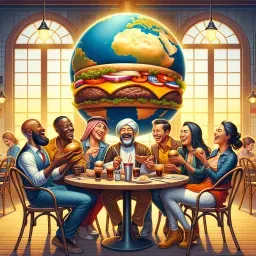
You know what they call a Quarter Pounder with Cheese in Paris?
-

I love you, Honey Bunny.
-
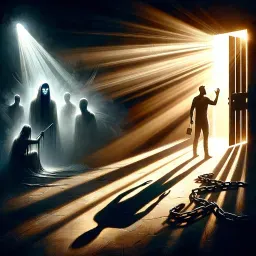
Bring out the gimp.
-

I'm sorry, did I break your concentration?
-

I just shot Marvin in the face.
-
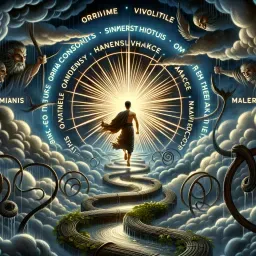
The path of the righteous man is beset on all sides by the inequities of the selfish and the tyranny of evil men.
-
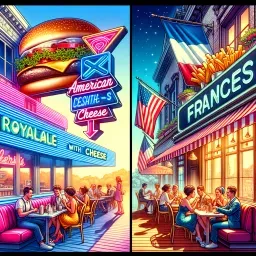
Do you know what they call a Royale with Cheese?
-
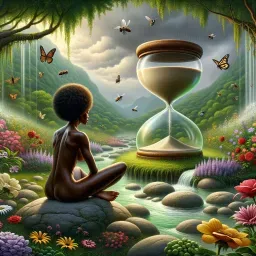
Don't sweat the small stuff.
No Comments